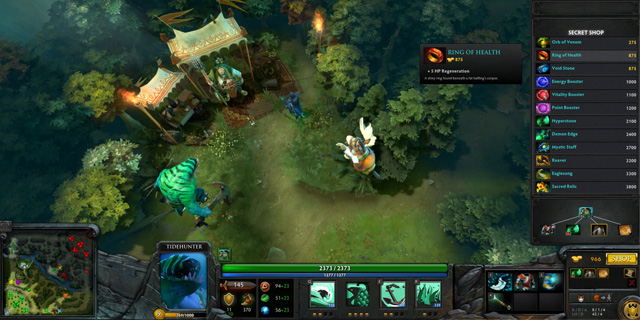
People sometimes ask me why, at my age, I still play video games frequently. When they ask this, they’re genuinely interested; we’re approaching a point now where it’s sort of silly to completely scoff at a hobby played by hundreds of millions of people around the world everyday. So without a hint of malice, they are keen to know why somebody would spend not a small amount of time invested in something that “isn’t real” or “just a game.” It’s a legitimate question.
I try to convey to them that with some games, it’s all about the community built around playing with other people that draws me in. There’s something inherently different about beating another human being than beating a computer; there’s a certain unexpectedness that is thrilling. As you’re about to face off against an unknown opponent, thoughts start to creep your head. Are they good? Am I good? Have I practiced enough? Breathe. Relax. It’s only a game.
These thoughts also enter your head in another venue; an example that the uninitiated will surely understand. It’s a parallel you can use when explaining your passion for gaming. Sport.
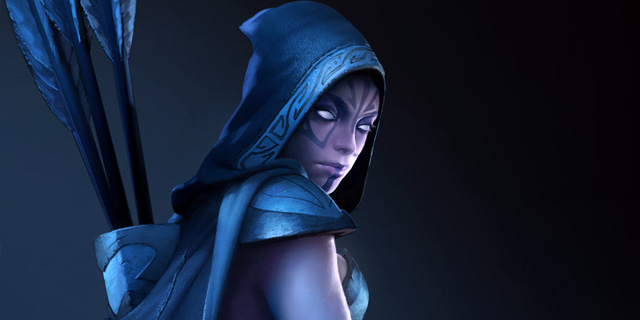
Playing an online game against another person doesn’t require nearly the same amount of athletic ability, nor does it take much of a physical toll on the body. It’s not a good workout. However, the thrill of winning and losing, of snatching victory from the jaws of defeat, or the agony of losing a close game, is just as real in video games as it is in real life. Those feelings exist, otherwise you wouldn’t have millions of people playing them each day. It simply wouldn’t happen.
The game I’ve been playing lately is Dota 2. It is a multiplayer online battle arena (MOBA) game, in which five human players go up against another five human players in a hybrid RPG/real-time strategy scenario. You choose a hero (or are randomly given one) from the pool of over 100. Each hero has (at least) four abilities. You level up in the game by killing generated “creeps” starting at each opposing base. You also gain gold by getting the last hit on a creep, or by killing an enemy hero. The result can be a frantic, tactical, maddening and very rewarding experience depending on which hero you play and how well you and your teammates cooperate.
Never before has the phrase “you’re only as good as your weakest link” been more suitable. A few deaths here and there won’t change the game completely, but heroes get significantly stronger when they kill an opposing hero. If the trend continues, that hero is “fed” and becomes so powerful that nobody on the opposing team can handle them, regardless of skill level. It is for this reason, and many others, that Dota 2 (and games like it) are not easy to get into. They’re not rookie friendly. You can’t just jump in and expect to be good, or anything resembling good. You need hours and hours of practice. You need experience playing the game with dozens of heroes before you can get comfortable with the advanced tactics of the game that go beyond simply trying to kill enemy heroes with your abilities.
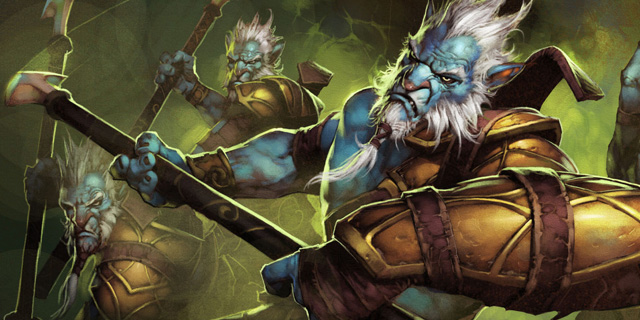
Aside from this, there are well over 100 items to purchase and collect. You’ll never play the same game twice, due to the massive amount of variation and choices in the gameplay. It is competitive by nature; you can’t play a game passively. It requires your full attention for 99% of the game. The other four human players are counting on you. It’s intimidating, brutal, merciless and completely unforgiving. It’s also mesmerizing, addicting, thrilling and shocking.
All the points I’ve mentioned above can be translated into a real-life athletic competition. A weak link can make victory impossible. Most competitive sports aren’t rookie friendly; if you haven’t played the game many, many times before, you’re going to be lost. Your technique is going to be nonexistent, and good players will beat you ten times out of ten. You may be overwhelmed before you start.
But there are positive aspects that connect Dota 2 and sports. The best time you’ll have doing both is playing with friends. Talking strategy, then implementing it successfully, is very rewarding. Bailing out a friend in a tough spot, only to have them thank you later when the action dies down, positively reinforces your skill and your decision. Having more experienced friends teach you the inner workings of a game is less intimidating than learning it from a stranger. (It certainly doesn’t help when a stranger tells you that you suck at a game you barely know how to play. No positive reinforcement there.) Memorable victories will stick in your mind for a long time. You’ll try to forget blowout losses as soon as possible. You’ll learn from close games. You’ll be on the edge of your seat for most of it. Even if you’re out of the action temporarily, you’re rarely bored and always focused on the task at hand.
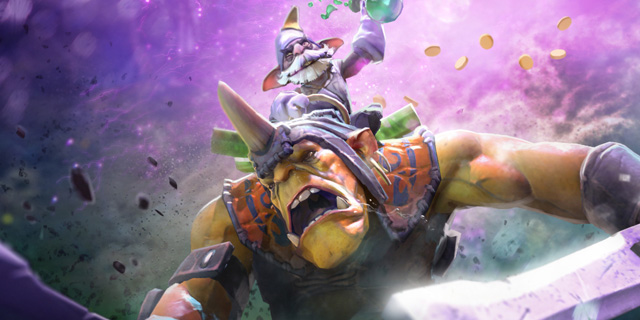
Dota 2 has a flow like sports. Games are decided at crucial moments. Wins and losses can be traced back to these moments, and whether you made the right or wrong move. Positions are established prior to the game starting. Teams tend to let the first few minutes go by without a ton of action; they want to get a feel for the other team. How skilled are they? Who should be a target? Is there a general strategy we want to implement based on the abilities of our players? As in sport, communication in Dota 2 is absolutely key to victory. Superior cooperation and coordination will win the majority of the games. It doesn’t matter how individually skilled you are; you can’t take on five heroes at once in Dota 2.
Comebacks are rare in Dota 2, but they do happen, about as often as in sport. They make for the best stories. The unusual, the rare or the surprising are always a draw in any kind of team activity. The speed in which certain defeat can turn into a potential victory is drastic. What you have to remember is that these games are being played by human beings. We react emotionally to almost anything that happens in our lives; those emotions are enhanced in organized competition.
If you’re up by a large amount in soccer game, for example, your coach may tell you to play more passively. You’ve basically won, now you just need to shut the other team down. No problem. But the other team scores a goal. You get frustrated, which might lead to your play worsening. It doesn’t matter if you tell your teammates to calm down. Another goal happens, and they’re in full panic. They may say they’re relaxed and focused, but we fundamentally can’t work that way. Nobody can just turn their emotions off; we react. Dota 2 is the same; just because you’re winning doesn’t mean you’ll win. The tide can turn. Things can change. Maybe a massive fight leads to the other team winning a slight advantage. No big deal, you say to yourself, we’ve still got this in the bag. But your laissez-faire attitude might lead you to miss a crucial opening to win the game, and then it’s lost forever. You cannot believe that the other team is making a comeback. How did this happen?
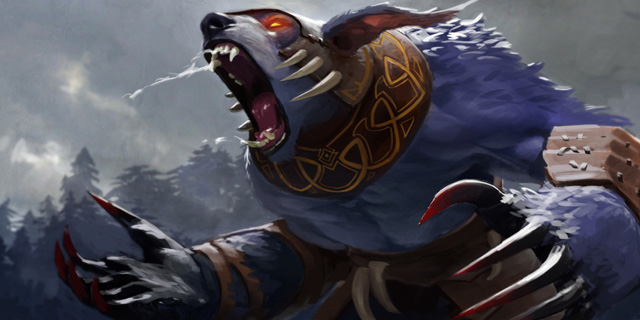
The roller coaster of completely unpredictable results is one of the major draws of a game like Dota 2. If you’re playing with random people, you have no idea if they’re going to be forgiving, kind teammates or absolute jerks who will insult you the minute you make a bad move. You may select a hero that you’re traditionally terrible with, but end up having an amazing game with them. Sometimes you’ll do everything right; you’ll be in the zone. You always seem to have enough money to buy the item you want. Your attacks are perfectly timed. You’ll get that lucky last hit in, your teammates will save you from dying every time and you’ll win the game with almost no effort. This happens in sports all the time. Elite athletes have the ability to not only reach a higher level of play than the rest of the players, but they can maintain this peak for extended periods of time. You’ll hear things like how everything is in slow motion to them. They can see their teammates clearly. They make impossible plays seem easy. They win the game before it’s even over. Don’t ask how you get into this “zone”. You can’t force it, it just happens.
I wouldn’t recommend Dota 2 to just anybody, much like I wouldn’t recommend jumping into a competitive athletic competition with no prior experience. The learning curve is steep and the game is constantly evolving. It’s best to find the game type you’re most interested in. Practice, get somebody to give you pointers and, above all, try to play with your buddies. Losses don’t feel as bad, encouraging talk is more prevalent, assholes are kept to a minimum and wins feel that much better. The initial learning phase can be anything but fun. Once that’s over though, it’s anybody’s game.



















